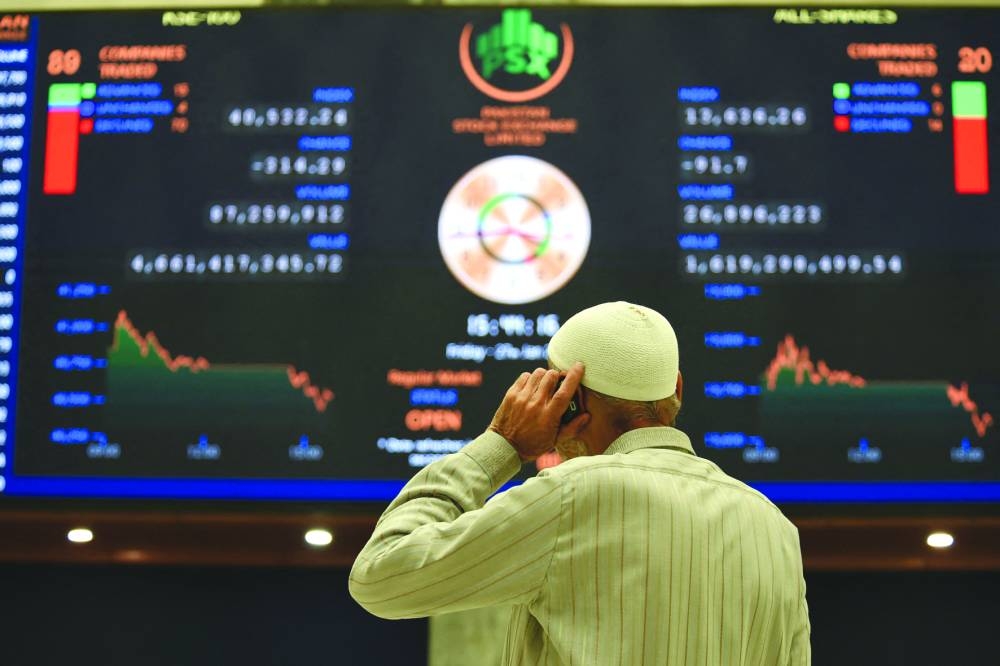An escalation of geopolitical tension between Pakistan and neighbouring Iran yesterday sent ripples through Pakistan’s bonds and stocks, and raised the spectre of more pressure on the country’s struggling economy.
Pakistan conducted strikes inside Iran, targeting separatist Baloch militants two days after Tehran said it had attacked the bases of another group within Pakistani territory.
The country, where an election is scheduled for February 8, is already facing a crippling financial crisis with its $350bn economy beset by high inflation and yawning fiscal and current account deficits.
A $3bn International Monetary Fund (IMF) loan programme agreed in July helped pull Pakistan back from the brink of a sovereign debt default, but the short-term nine-month standby arrangement is set to expire this spring.
Pakistan’s international bonds fell by as much as 1.3 cents in early trade before trimming or reversing losses, with some shorter-dated bonds down 0.4 cent while longer-dated issues eked out small gains, data from Tradeweb showed.
Bonds maturing in 2031 and beyond were trading between 60.9-64.1 cent, well below the 70 cent in the dollar threshold below which debt is seen as distressed.
The benchmark share index dropped as much as 1.6% before recovering some ground to close 0.57% lower.
Economic ties with Iran, while not huge, are important for Islamabad as it struggles to supply its western-most regions in Balochistan with critical commodities.
Iran provides electricity to many areas in Pakistan, and there is sizeable unofficial trade in commodities including Liquefied Petroleum Gas and Iranian diesel.
Pakistan passed a special order in June to allow barter trade with Iran, along with Afghanistan and Russia, for certain goods, among them petroleum and natural gas.
“The bilateral trade, valued at over $2bn, is crucial for both economies, especially regions like Balochistan...where the local economies are significantly dependent on trade with Iran, particularly for agricultural products and petrochemicals,” said Aneel Salman, chair economic security at Islamabad Policy Research Institute.
Salman said that the interruption of trade routes would have an immediate impact, including shortages in Pakistan and a notable decrease in the critical $2bn trade volume.
The conflict could also significantly affect long-term collaborative projects like the Pakistan-Iran gas pipeline, known as the Peace Pipeline, he added.
The pipeline, already delayed, would transport natural gas from Iran to Pakistan and potentially India. It may now face further delays and funding challenges.
Pakistan’s then-minister of state for petroleum in August said the government was “actively engaged” with Iran to dissuade it from pursuing international arbitration over delays to the pipeline. Pakistan has until March to negotiate a settlement to avoid legal battles.
The two countries signed a five-year trade plan in August 2023 and set the bilateral trade target at $5bn.
“On the surface, this episode...should not lead to any more serious an escalation than its precedents,” said Hasnain Malik, head of equity research at Tellimer. “But it is worth noting that this latest exchange is taking place as Pakistan is trying to improve relations with the US.”

A broker talks on phone as he watches share prices at the Pakistan Stock Exchange in Karachi (file). An escalation of geopolitical tension between Pakistan and neighbouring Iran yesterday sent ripples through Pakistan’s bonds and stocks, and raised the spectre of more pressure on the country’s struggling economy.
